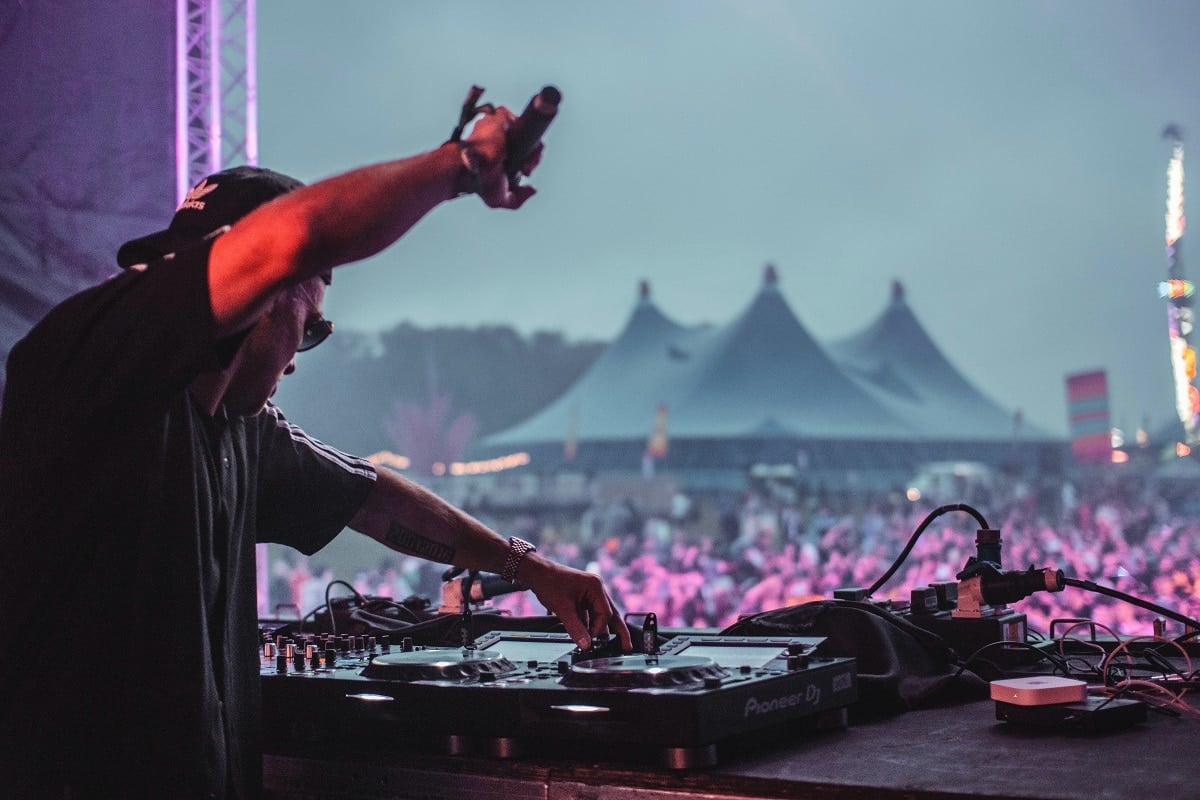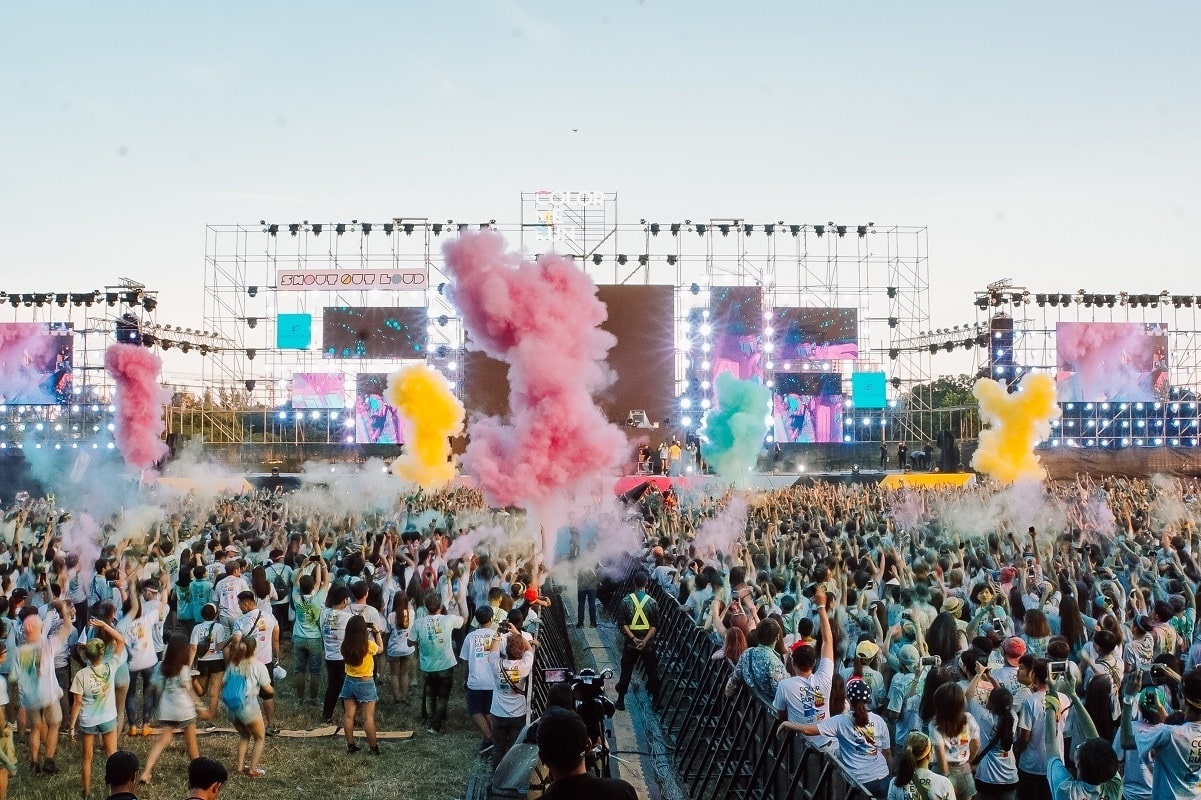1
HOME > Business >
WHAT YOU NEED TO KNOW ABOUT ORGANISING A SUCCESSFUL FESTIVAL
Written by Menswear Style in Business on the 19th December 2023

Organizing a successful festival is no small feat. Whether you're a seasoned event planner or a first-timer, the complexities of pulling off a memorable festival can be overwhelming. However, with the right approach and meticulous planning, you can ensure a seamless and unforgettable experience for both attendees and participants. So, here are some of the key aspects you need to know to organize a successful festival.
Choosing the Right Venue
The first critical decision in organizing a successful festival is selecting the right venue. The location sets the tone for the entire event and can significantly impact attendance. Consider factors such as accessibility, capacity, and amenities. Ensure quality stage hire for festivals and that the venue aligns with the festival's theme and provides the necessary infrastructure for performances, exhibitions, or any planned activities. A thoughtful venue choice not only enhances the overall experience but also simplifies logistics for both organizers and attendees.

Strategic Planning and Timely Execution
Once the venue is secured, meticulous planning is the backbone of a successful festival. Create a detailed timeline that encompasses every aspect of the event, from booking talent and vendors to marketing and ticket sales. Clearly define roles and responsibilities within your organizing team, and establish effective communication channels. Timely execution is crucial - any delays can snowball into larger issues. Stay agile and be prepared to adapt to unforeseen challenges, ensuring that you have contingency plans in place for various scenarios.
Engaging Entertainment Lineup
The success of a festival often hinges on its entertainment lineup. Curate a diverse and appealing selection of performers, artists, and activities that cater to your target audience. Research and understand the preferences of your demographic, and aim for a balanced mix of established acts and emerging talent. Ensure that the performances align with the festival's theme and create an immersive experience for attendees. A stellar lineup not only attracts a larger audience but also contributes to the festival's overall vibe and atmosphere.

Seamless Logistics and Attendee Experience
Smooth logistics are paramount to a successful festival. From efficient entry and exit procedures to well-organized vendor setups, every detail matters. Prioritize attendee experience by providing amenities such as clean facilities, security, and medical services. Leverage technology for ticketing, cashless transactions, and real-time updates. A positive and hassle-free experience for attendees not only ensures their satisfaction but also contributes to the festival's reputation, increasing the likelihood of repeat attendance and positive word-of-mouth.
Post-Event Evaluation and Future Planning
Once the festival concludes, don't overlook the importance of post-event evaluation. Gather feedback from attendees, performers, and vendors to identify strengths and areas for improvement. Analyze data on attendance, revenue, and social media engagement to measure the festival's success. Use these insights to inform future planning, adjusting strategies based on what worked well and what needs enhancement. Building on the success of one festival sets the stage for the next, creating a cycle of improvement and growth.

Effective Marketing Strategies
Craft a compelling marketing strategy to create buzz around your festival. Utilize social media platforms, email newsletters, and partnerships with influencers to maximize reach. Leverage visually appealing content such as teaser videos, artist spotlights, and behind-the-scenes glimpses to capture the audience's attention. Implement ticket promotions, early-bird specials, and exclusive offers to incentivize early purchases. A well-executed marketing campaign not only boosts attendance but also establishes a strong brand presence for your festival in the competitive landscape.
Community Engagement and Partnerships
Forge connections within the local community to enhance the impact of your festival. Collaborate with local businesses, artists, and organizations to foster a sense of community involvement. Establish partnerships that benefit both parties, such as cross-promotions or shared resources. Engage with local media outlets to amplify your festival's reach. By ingraining your event within the fabric of the community, you not only gain local support but also create a unique identity for your festival that resonates with attendees on a personal level.

Technological Integration for Enhanced Experience
Embrace technology to elevate the overall festival experience. Implement augmented reality (AR) or virtual reality (VR) elements to add an innovative touch to performances or interactive installations. Develop a dedicated festival app to provide real-time schedules, maps, and updates. Explore cashless payment options to streamline transactions and reduce waiting times. Leverage data analytics to understand attendee behavior and preferences, enabling you to tailor future events more effectively. By integrating technology, you not only stay ahead of trends but also enhance the overall modernity and efficiency of your festival.
Organizing a successful festival involves a multifaceted approach, encompassing venue selection, strategic planning, engaging entertainment, seamless logistics, marketing prowess, sustainable practices, community engagement, and technological innovation. By mastering these elements, you can craft an experience that resonates with attendees, fosters community connections, and sets the stage for future success. Remember, a successful festival is not just an event; it's a dynamic celebration that leaves a lasting impression on everyone involved.
Trending
2
3
4
5
6
7
8
9
10









